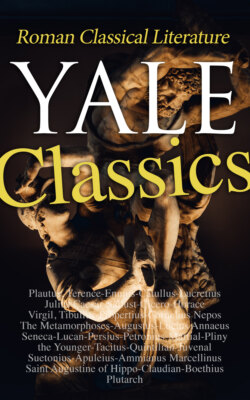Читать книгу Yale Classics - Roman Classical Literature - Луций Анней Сенека - Страница 440
На сайте Литреса книга снята с продажи.
XIV
ОглавлениеTable of Contents
In so great and corrupted a city, Catiline had always about him, what was no difficult matter to find in Rome, bands of profligate and flagitious wretches, like guards to his person. For all those who were abandoned to gluttony and voluptuousness, and had exhausted their fortunes by gaming, feasting, and licentiousness; all who were overwhelmed with debts, contracted to purchase pardon for their crimes: add to this, parricides and sacrilegious persons from all quarters; such as were convicted for crimes, or feared conviction; nay, farther, all who lived by perjury and shedding the blood of citizens: lastly, all whom wickedness, indigence, or a guilty conscience disquieted,—were united to Catiline in the firmest bonds of friendship and intimacy. Or if any person of an unblameable character became familiar with him, by daily conversation, and the snares that were laid to corrupt him, he too soon resembled, and even equalled, the rest. But what he chiefly courted was the intimacy of young men: their minds, being soft and pliable, were easily ensnared. Some of these he provided with mistresses; bought horses and dogs for others, gratifying the favourite passion of each: in a word, he spared no expense, nor even his own honour, to engage them heartily in his interests. Some there were, I know, who thought that the youth who frequented Catiline’s house were guilty of licentiousness; but this rumour, I apprehend, was more owing to other reasons, than that there was any clear evidence of the fact.
